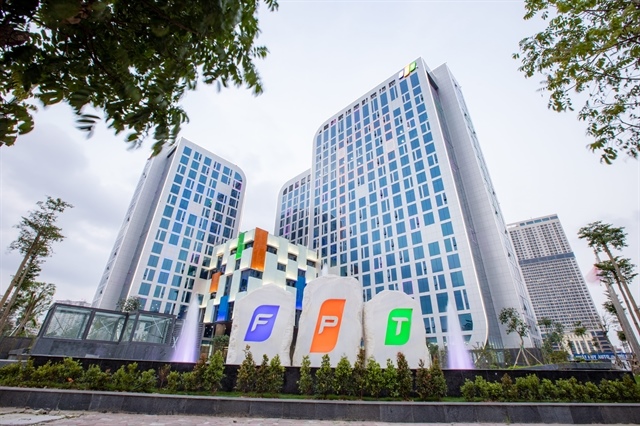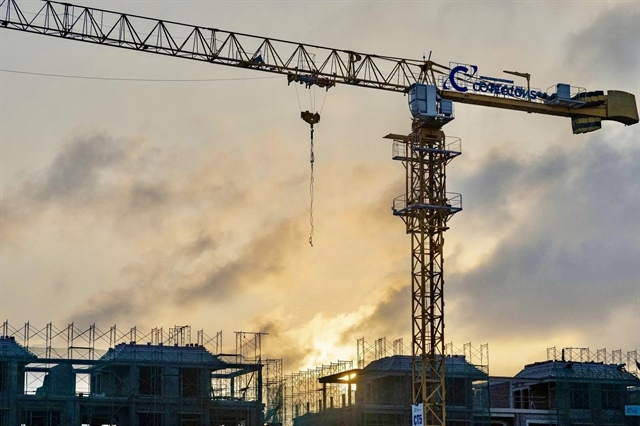Hoang Anh Gia Lai’s health situation raises controversy
Hoang Anh Gia Lai’s health situation raises controversy
The rapid-fire pieces of news about the big debts incurred by Hoang Anh Gia Lai and the slow sale of its real estate products have raised doubts about the health of the conglomerate, the boss of which – Doan Nguyen Duc – was listed among the most powerful businessman in South East Asia.
In Vietnam, Hoang Anh Gia Lai is considered a powerful conglomerate with a lot of subsidiaries which operates in many important fields of the national economy, including rubber plantation, real estate and construction.Fitch Ratings, in its March 14 press release, stated that it downgraded the outlook of Hoang Anh Gia Lai from “stable” to “negative” due to negative effect caused by the current stagnancy in local property sales.
Hoang Anh Gia Lai long- term Foreign and Local Currency Issuer Default Ratings (IDRs) was affirmed at 'B'.
The rating agency has also downgraded Hoang Anh Gia Lai’s senior unsecured rating and its 90 million dollar notes to 'B-' from 'B', and revised the Recovery Rating on the notes to 'RR5' from 'RR4'.
Fitch also stated that it would keep negative rating for Hoang Anh Gia Lai if it does not make any improvement in clearing the stocks.
Another “negative” piece of news for Hoang Anh Gia Lai is that it was named by the General Department of Taxation as an enterprise which had huge sum of unpaid tax. Though Hoang Anh Gia Lai then explained that it was slow in paying tax just because of technical problems and it later fulfilled the tax duties already, questions still have been raised about the financial capability of the conglomerate.
Nguoiduatin, a newswire, in early May 2012 reported that Hoang Anh Gia Lai had the total accounts payable of 15,493 billion dong, or 63 percent of total assets. Of this amount, the economic group has to pay interests for the 11,622 billion dong debt, which includes bank loans, bonds and convertible bonds. The short term debts accounted for 27.5 percent of the total debts.
The Bank for Investment and Development BIDV was the biggest creditor of Hoang Anh Gia Lai who lent 2640 billion dong, including 410 billion dong of short term loans and 2230 billion dong in long term loans.
In 2011, Hoang Anh Gia Lai had to pay 464 billion dong for the loans’ interests, while the figure was 200 billion dong in the first quarter of 2012 alone.
However, Hoang Anh Gia Lai keeps calm amid the negative information.
Vo Truong Son, Deputy Chief Financial Officer of the group replied that the credit downgrade by Fitch is “unsound,” saying that Fitch bases solely on the book value when calculating the possible recovery of Hoang Anh Gia Lai’s unsecured debts.
He affirmed that rubber plantations and land assets of the group have a market value much higher than the book value, which was excluded in Fitch’s calculation.
Meanwhile, Dr Le Dang Doanh, a well known economist, has affirmed that no one can say the debt of over 15 trillion is “normal”. He affirmed that the debt of 63 percent of total assets is higher than the average international standard, adding that if the financial situation remains stable, but Hoang Anh Gia Lai is still slow in paying debts, this means that it has some certain other problems.
Nevertheless, some other economists have spoken in support of Hoang Anh Gia Lai.
Professor Dang Hung Vo, the former Deputy Minister of Natural Resources and the Environment, who is famous in Vietnam as a land expert, said that the debts alone cannot prove that the enterprise is in bad situation.
“On the contrary, I think that the debt is the sign of a powerful company which does business well and uses capital in the most effective way,” Vo said.
vietnamnet




















